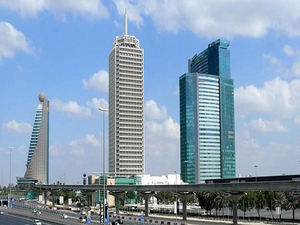Dubai Steps in To Take Over Cash-Strapped Bank

Dubai's government unexpectedly intervened Monday to take over Dubai Bank, a cash-strapped lender jointly owned by the Dubai ruler's investment company and the developer of the world's tallest tower.
The government, in a statement issued by the city-state's media office, vowed to immediately pump an undisclosed amount of fresh funds into the bank. The announcement is a reminder that while Dubai may be recovering from the economic downturn, it is far from being in the clear after its biggest conglomerate was forced to re-negotiate the terms on about $25 billion in debt.
The emirate continues to grapple with tens of billions in liabilities held by companies with ties to the government and its hereditary ruler, Sheik Mohammed bin Rashid Al Maktoum. In the latest announcement, the government said it acted swiftly to ensure the preservation of Dubai Bank's deposits.
"The intervention is designed to ensure that Dubai Bank's business continues uninterrupted while options for the bank's future, whether to be run on a stand-alone basis or be potentially merged with another bank in which the government has ownership, are being assessed," the Dubai government said.
Dubai Bank is 70 percent owned by Dubai Holding, a conglomerate personally controlled by Sheik Mohammed. The other 30 percent is held by Emaar Properties, the developer of the record-breaking Burj Khalifa skyscraper.
A division of Dubai Holding known as Dubai Group is seeking to re-negotiate the terms on $10 billion in debt. The conglomerate owns property in the U.S. and has sizable stakes in several financial companies, including regional bank EFG-Hermes and Europe's Marfin Popular Bank.
Monday's intervention will give the city-state's government itself full control of Dubai Bank. It said the bank's management team won't be affected by the takeover.
It was not immediately clear how much money the bank needs or where exactly it would come from. The government statement said the takeover was supported by the United Arab Emirates' central bank and the seven-state federation's ministry of finance.
Dubai and its many government-controlled companies are shouldering well over $100 billion in debt, though the total size of the liabilities has never been disclosed.
The emirate in March signed a final agreement with creditors to repay $25 billion worth of loans tied to state conglomerate Dubai World on revised terms over the next eight years. Acute financial problems at the company in late 2009 sent tremors through global markets.
